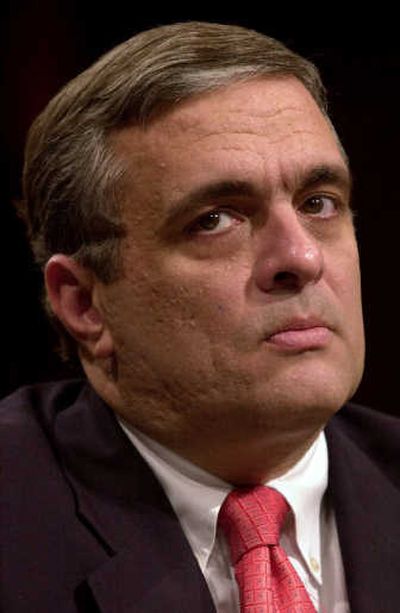CIA watchdog faults pre-9/11 leadership

WASHINGTON – The CIA’s top leaders failed to use available powers, never developed a comprehensive plan to stop al-Qaida and missed crucial opportunities to thwart two hijackers in the run-up to Sept. 11, the agency’s own watchdog concluded in a bruising report released Tuesday.
Completed in June 2005 and kept classified until now, the 19-page executive summary finds extensive fault with the actions of senior CIA leaders and others beneath them. “The agency and its officers did not discharge their responsibilities in a satisfactory manner,” the CIA inspector general found.
“They did not always work effectively and cooperatively,” the report stated.
Yet the review team led by Inspector General John Helgerson found neither a “single point of failure nor a silver bullet” that would have stopped the attacks that killed nearly 3,000 people.
In a statement, CIA Director Michael Hayden said the decision to release the report was not his choice or preference, but that he was making the report available as required by Congress in a law President Bush signed earlier this month.
The report covers terrain heavily examined by a congressional inquiry and the Sept. 11 Commission. However, the CIA watchdog’s report goes further than previous reviews to examine the personal failings of individuals within the agency who led the pre-9/11 efforts against al-Qaida.
Helgerson’s team found that no CIA employees violated the law or were part of any misconduct. But it still called on then-CIA Director Porter Goss to form accountability boards to look at the performance of specific individuals to determine whether reprimands were called for.
The inquiry boards were recommended for officials including former CIA Director George Tenet, who resigned in July 2004; his Deputy Director for Operations Jim Pavitt; Counterterrorism Center Chief Cofer Black and the agency’s executive director, who was not further identified.
In a statement, Tenet said the inspector general is “flat wrong” about the lack of plan.
“There was in fact a robust plan, marked by extraordinary effort and dedication to fighting terrorism, dating back to long before 9/11,” he said. “Without such an effort, we would not have been able to give the president a plan on Sept. 15, 2001, that led to the routing of the Taliban, chasing al-Qaida from its Afghan sanctuary and combating terrorists across 92 countries.”
In October 2005, Goss rejected the recommendation for the inquiry boards.
Hayden stuck by Goss’ decision.
While blame is heaped on Tenet and his deputies, the report also says that Tenet was forcefully engaged in counterterrorism efforts and personally sounded the alarm before Congress, the military and policymakers. In a now well-known 1998 memo, he declared, “We are at war.”
The trouble, the report said, was follow-up.
The inspector general did take exception to findings of Congress’ joint inquiry into 9/11. For instance, the congressional inquiry found that the CIA was reluctant to seek authority to assassinate bin Laden. Instead, the inspector general believed the problem was the agency’s limited covert-action capabilities.
The CIA’s reliance on a group of sources with questionable reliability “proved insufficient to mount a credible operation against bin Laden,” the report said. “Efforts to develop other options had limited potential prior to 9/11.”